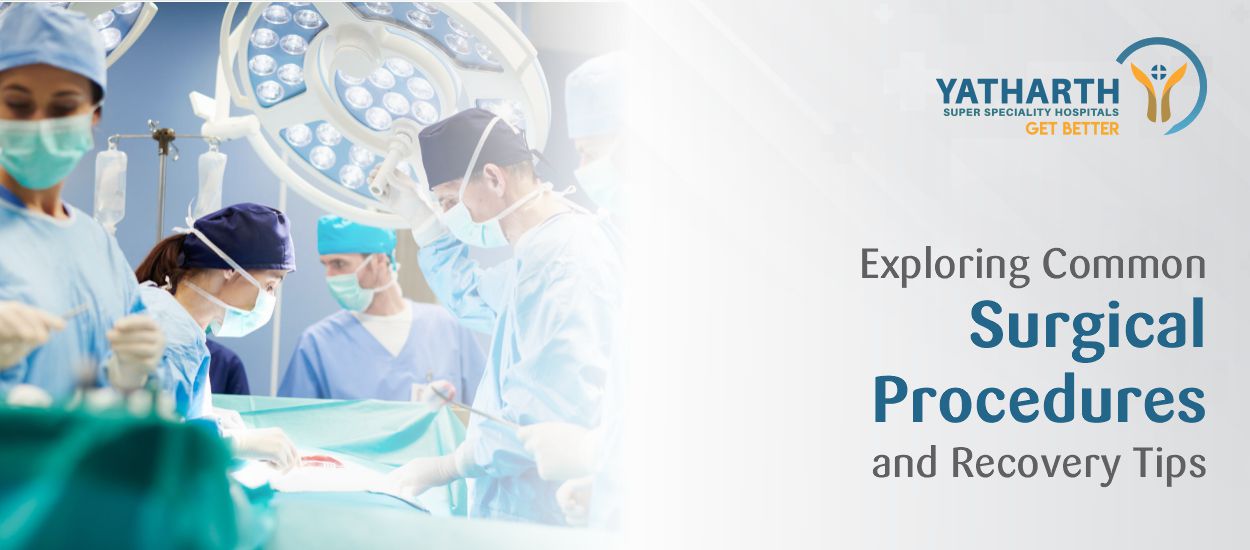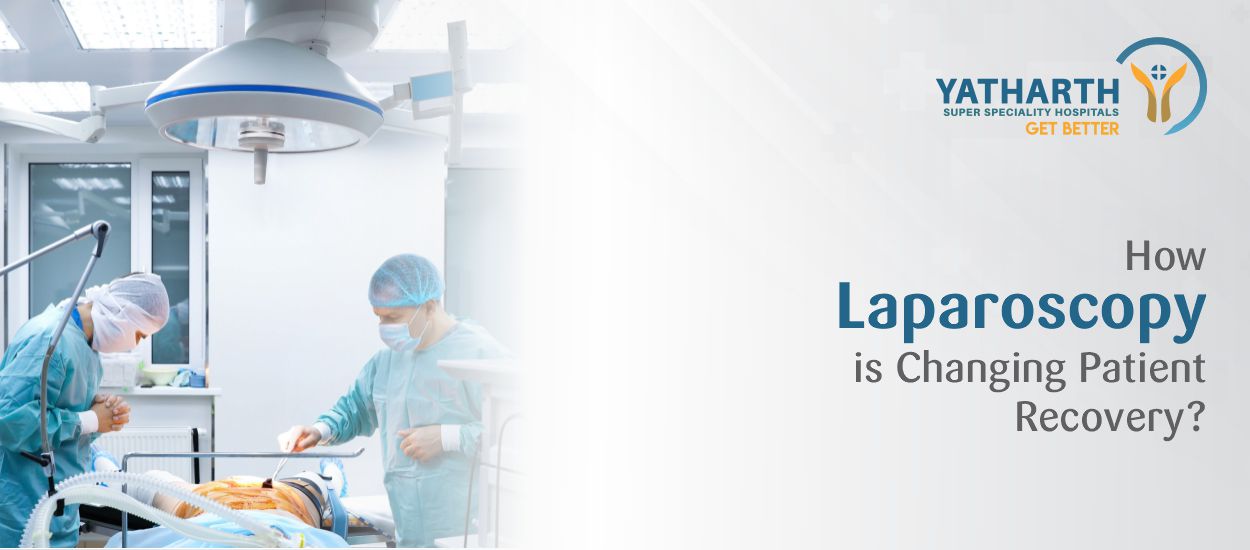Exploring Common Surgical Procedures and Recovery Tips
This blog will explore common surgical procedures, discuss how to prepare for surgery, delve into......
Read MorePain management, wound healing, and returning to your regular activities are likely the first things that come to mind when you consider recovering from surgery. However, your gut health is another important factor.
Most people are surprised to learn about the connections between your gut and brain. It is commonly referred to as the gut-brain axis. It impacts not only digestion but also the healing process following surgery.
The best general surgery specialist mentions that a healthy gut can fasten recovery. It can lessen stress, regulate inflammation, and even lower the chance of complications.
Let's examine the relationship between gut health and mental health and why it's so important during the recovery process following surgery.
Your brain and gut are constantly communicating with one another. Chemical signals, hormones, and nerves all play a part in this.
Your enteric nervous system is located in your gut. It is also sometimes referred to as the ‘second brain’ because it regulates digestion and communicates with your brain.
Your brain feels better when your gut is healthy. Additionally, a calm mind facilitates better digestion. It is reciprocal.
For this reason, the best general surgeon will remind you that part of your surgical care includes stress management, proper nutrition, and gut health.
Your body enters a healing state following surgery. Your gut health is one of many factors that affect this process.
Here’s how:
There are billions of bacteria in your gut. We refer to this as your gut microbiome.
The best general surgery hospitals will tell you that these bacteria have a significant impact on the function of your immune system. Inflammation is reduced by beneficial bacteria. It can worsen due to bad bacteria.
You're more likely to recover faster if your gut microbiota is in balance. You might experience issues like infections or a sluggish recovery if it's out of balance.
Not only is surgery physically taxing, but it is also mentally exhausting. Your gut may suffer when you're under stress. You might experience constipation, bloating, or difficulties with food digestion.
However, an unhealthy gut can cause your brain to receive stress signals. Staying relaxed is beneficial for more than just your mental health, according to the Best General Surgery Specialist. Additionally, it benefits your digestive system, which speeds up your recovery.
After surgery, your body needs good food to repair itself. But if your gut is not working well, you won’t absorb nutrients properly.
The Best General Surgeon will advise you to eat light, gut-friendly meals after your operation. This could include foods like:
These foods help the good bacteria grow. They also keep your digestion smooth, so your body gets the vitamins and minerals it needs to heal.
A significant component of your immune system is your gut. You stand a better chance of avoiding infections following surgery if it is healthy.
Before and after surgery, doctors at the Best General Surgery Hospitals frequently emphasise gut health. To help balance your gut flora, they might suggest probiotics or prebiotics.
This lowers the risk of urinary tract, lung, or wound infections.
After surgery, many people experience problems like gas, bloating, or constipation. This is particularly valid following abdominal surgeries.
During your recovery, the best general surgeon will typically assess how well your digestive system is functioning. To help your bowels function normally again, they might advise taking a walk early, drinking plenty of water, and eating small meals.
A healthy gut will heal more quickly, leading to a shorter hospital stay and a smoother recovery.
During your recovery from surgery, you can do the following easy steps to keep your gut and brain in harmony:
Fiber-rich foods help maintain a healthy digestive system. They also nourish your gut's beneficial bacteria.
The Best General Surgery Specialist will advise you to eat more leafy greens, apples, and oats.
Your gut bacteria may be harmed by processed foods. Steer clear of junk food, fried foods, and excessive sugar, especially before and after surgery.
Nutrition counselling is frequently offered by the Best General Surgery Hospitals to assist you in eating healthier while you heal.
Digestion requires water. It helps you avoid constipation, which is common after surgery, and keeps your bowels moving.
If you're taking medications that could slow down your digestion, the best general surgeon will tell you to drink water frequently.
Stress can be managed with deep breathing, meditation, or even quick walks.
Your gut functions better when you're at ease. Additionally, you heal more quickly when your gut functions better.
Probiotics may occasionally be recommended by the Best General Surgery Specialist. These are supplements that contain healthy bacteria.
After surgery, they can aid in re-establishing intestinal balance, particularly if you've taken antibiotics.
Final Thoughts
How well you recover from surgery is greatly influenced by the gut-brain connection. It has an impact on your mood, digestion, immune system, and general healing process.
You're getting more than just an operating surgeon when you pick the Best General Surgeon. You’re getting a guide who understands the importance of total health, including your gut.
Providing comprehensive care is the primary goal of the best general surgery hospitals. This entails helping your mind and body work together while you heal.

This blog will explore common surgical procedures, discuss how to prepare for surgery, delve into......
Read More
Hernias are common medical conditions that affect millions of people worldwide. Despite their......
Read More
Laparoscopic or “keyhole” surgery is transforming patient care by reducing recovery time,......
Read More